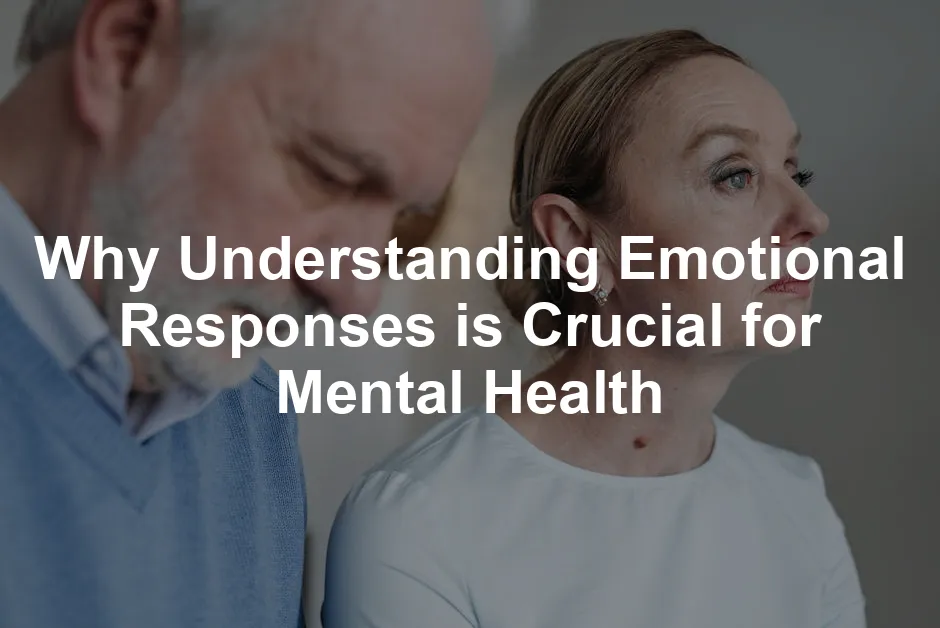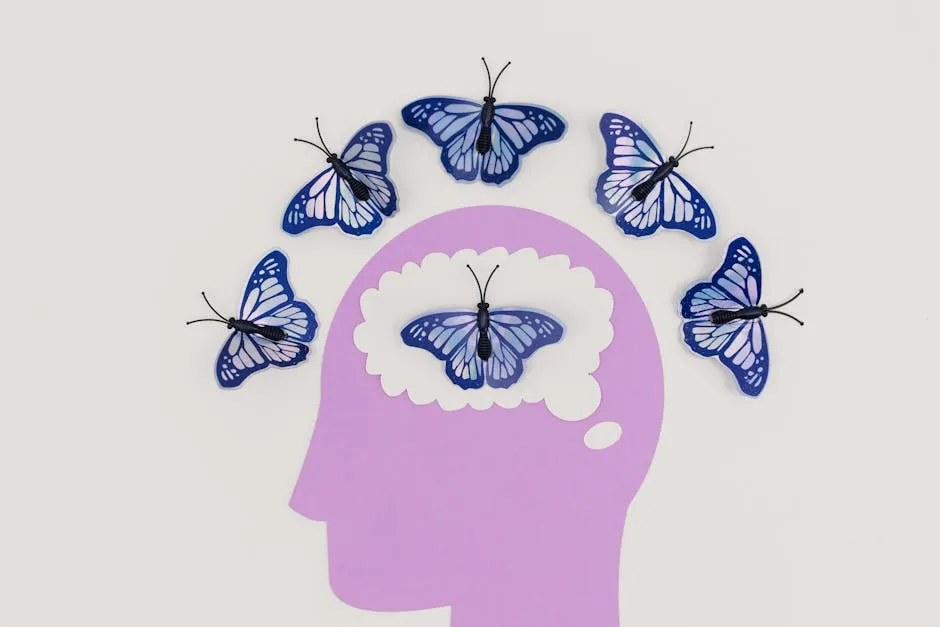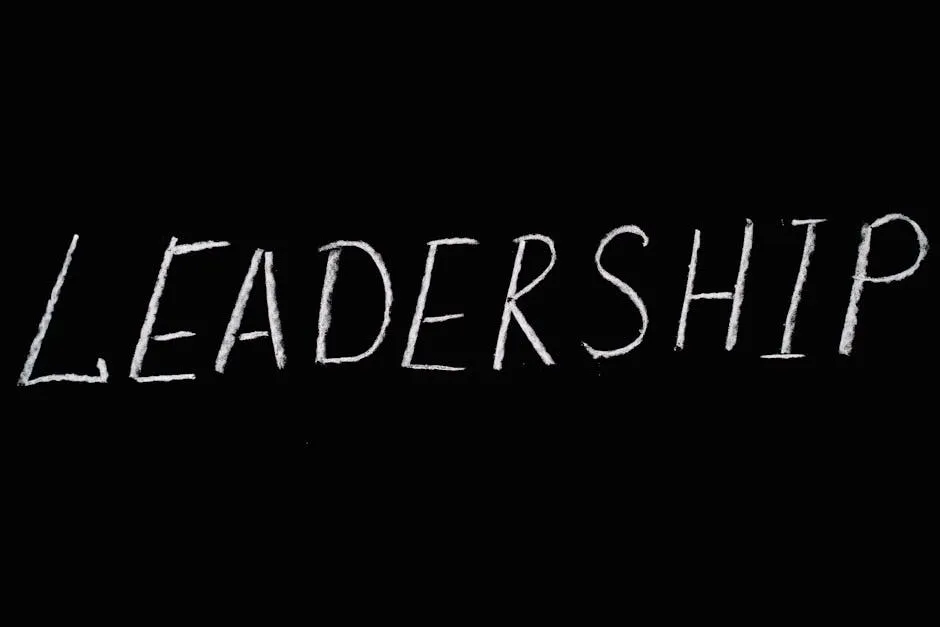
Why Understanding Emotional Responses is Crucial for Mental Health
Introduction
In the grand theatre of human experience, emotions are the actors that drive the plot. From the thrill of joy to the pang of heartbreak, emotional responses shape our behavior, thoughts, and ultimately, our mental health. Imagine being in a movie where the main character’s every decision hinges on their feelings. That’s us! But why does understanding these emotional responses matter?
It’s not just about feeling good or bad; it’s about how our emotions dictate our actions. Recognizing emotional responses can transform our lives. It’s the key to unlocking better relationships, enhanced resilience, and improved mental well-being. Think about it: if we can identify what triggers our feelings, we can learn to manage them more effectively.
This article highlights the vital role of emotional awareness in fostering mental health. We’ll navigate through the intricate landscape of our feelings and discover how they influence our mental state. You’ll see that emotional responses are not just chaotic outbursts; they are essential tools for personal growth.
Understanding emotions is crucial for mental health. It helps us build emotional intelligence, a skill linked to better stress management and stronger relationships. Studies show that those with high emotional intelligence respond to stress with grace instead of turmoil. For those looking to deepen their emotional intelligence, I highly recommend Emotional Intelligence 2.0 by Travis Bradberry. This book is a fantastic resource that equips you with practical strategies to enhance your emotional skills.
Moreover, our emotions trigger physiological responses that can enhance or impair our cognitive functions. Knowing how to regulate these responses can lead to healthier coping mechanisms and better decision-making. Imagine feeling overwhelmed by negative emotions yet knowing exactly how to process them. Sounds like a superhero skill, right?
As we journey through this exploration, we’ll uncover how emotional responses serve as essential tools. By the end, you’ll appreciate why emotional awareness is crucial for mental health. Together, let’s embrace our emotional landscape and use it as a compass to navigate toward healthier living.
Understanding emotions isn’t just a nice-to-have; it’s a must-have for anyone looking to thrive in today’s world. So, grab your popcorn, and let’s dive into the emotional rollercoaster that is our life!

Understanding Emotional Responses
The Nature of Emotions
Emotions are complex reactions. They involve three key components: subjective experience, physiological response, and behavioral expression. Each emotion starts with a personal experience, influenced by external stimuli. For instance, you might feel joy when receiving good news or sadness at a loss.
Physiological responses are the body’s reactions to these emotions. Your heart races in fear, or you may feel a rush of warmth when happy. These physical changes prepare you to respond to your feelings. Lastly, behavioral expressions are how you outwardly show these emotions. Smiles, frowns, and laughter are all part of our emotional language.
Now, let’s clarify the differences between emotions, feelings, and moods. Emotions are intense and short-lived, like a sudden burst of anger. Feelings are the conscious experience of emotions, often lingering longer. Moods, on the other hand, are more stable and can last for hours or even days without a clear trigger. Understanding these distinctions is vital for grasping how emotions affect mental health.

The Psychological Importance of Emotions
Emotions play a significant role in cognitive functions. They can enhance or hinder learning, memory, and decision-making. Studies show that emotional stimuli capture our attention better than neutral ones. This means when you’re excited or anxious, your brain is more engaged. For instance, research published in Frontiers in Psychology indicates that emotional arousal influences memory retention positively and negatively, depending on the context.
Furthermore, emotional responses are closely tied to mental health. Emotional dysregulation can lead to various mental health disorders, such as anxiety and depression. When emotions are not managed well, they can spiral out of control, impacting daily functioning. For example, ongoing stress without adequate emotional coping mechanisms can lead to burnout or emotional exhaustion.
Recognizing the importance of emotional regulation can lead to better mental health outcomes. By learning to manage emotions, individuals can improve their overall well-being. Techniques such as mindfulness and cognitive-behavioral strategies can help enhance emotional awareness. Speaking of mindfulness, if you’re just starting out, you might want to check out Mindfulness for Beginners by Jon Kabat-Zinn. This book is a great entry point into the world of mindfulness practices.
In summary, understanding emotional responses is crucial. Emotions influence our thoughts, actions, and overall mental health. By fostering emotional awareness, we can create healthier coping strategies and improve our mental resilience. Emotions are not just fleeting feelings; they are powerful forces that shape our lives every day.

Emotional Intelligence and Mental Health
Benefits of Emotional Intelligence
Impact on Mental Health
Emotional intelligence significantly influences mental health. Higher emotional intelligence often leads to lower rates of anxiety and depression. When we understand our emotions, we can manage them better. A study published in the American Journal of Lifestyle Medicine emphasizes that emotional regulation is crucial for mental well-being. Individuals who are emotionally aware tend to cope with stress more effectively. This balance helps maintain mental resilience.
Moreover, those with high emotional intelligence can identify when they’re feeling low. They can take proactive steps to address their emotions. This proactive approach can prevent feelings from spiraling into severe mental health issues. Emotional intelligence acts as a buffer against the storms of life. It empowers individuals to navigate challenges with grace. For a deeper understanding of emotional agility, consider reading Emotional Agility by Susan David. This book provides insights on how to navigate life’s challenges with emotional intelligence.

Improved Relationships
Emotional intelligence enhances interpersonal relationships. When we understand our emotions, we can communicate better with others. This clarity fosters deeper connections. High emotional intelligence helps in resolving conflicts constructively. Instead of reacting impulsively, emotionally intelligent individuals pause and reflect before responding.
According to research, empathy is a crucial component of emotional intelligence. Being able to empathize boosts relationship satisfaction. When we understand others’ feelings, we respond thoughtfully, leading to healthier interactions. This understanding also encourages collaboration and support in both personal and professional settings. As a result, emotional intelligence not only improves individual mental health but also strengthens the fabric of our relationships.

Emotional Acceptance and Regulation Strategies
The Power of Acceptance
Acceptance of emotions plays a vital role in mental health. Research shows that accepting negative emotions can lead to better psychological outcomes. A study in the Journal of Personality and Social Psychology highlights that habitual acceptance predicts lower negative emotional responses during stress. Individuals who embrace their feelings rather than judge them experience fewer symptoms of anxiety and depression. This acceptance allows for natural emotion processing, reducing the intensity of negative emotions.
Furthermore, acceptance fosters resilience. When we acknowledge our feelings, we can learn from them instead of being overwhelmed. This process leads to healthier coping mechanisms and improved mental health. By accepting our emotions, we create space for growth and healing. To facilitate this process, consider keeping a Self-Care Journal that prompts you to reflect on your feelings regularly.

Techniques for Emotional Regulation
Mindfulness Practices
Mindfulness practices are effective for recognizing and managing emotions. Engaging in mindfulness helps individuals stay present. It encourages awareness of emotional states without judgment. Regular mindfulness meditation can enhance emotional regulation. Just a few minutes a day can significantly impact overall well-being. To help with this, you might want to try a Mindfulness Meditation Timer to keep your practice focused.

Cognitive-Behavioral Techniques
Cognitive-behavioral techniques are powerful tools for emotional regulation. Cognitive restructuring helps individuals challenge negative thought patterns. By reframing thoughts, we can alter our emotional responses. Behavioral activation encourages engaging in positive activities, uplifting mood and motivation. To support your journey, consider using a Cognitive Behavioral Therapy Workbook for Dummies to help guide you through these techniques.

Therapeutic Approaches
Several therapeutic approaches focus on emotional regulation. Acceptance and Commitment Therapy (ACT) promotes psychological flexibility. It encourages individuals to accept their thoughts and feelings while committing to their values. Dialectical Behavior Therapy (DBT) emphasizes understanding and regulating emotions. Both therapies provide strategies for managing emotional responses effectively.
Emotional regulation strategies are essential for maintaining mental health. By utilizing these techniques, individuals can foster resilience and navigate the complexities of their emotions. For a more relaxing environment to practice these techniques, consider using an Aromatherapy Essential Oils Set to enhance your mindfulness practice.

The Relationship Between Emotional Responses and Behavior
Emotional Triggers and Responses
Emotional responses are more than just fleeting feelings; they are powerful drivers of our actions. When we experience an emotion, it often leads to a behavior. For instance, when we feel angry, we might lash out or withdraw. Understanding this connection is crucial for mental health.
Triggers are events or stimuli that provoke emotional responses. These triggers can be anything from a comment made by a friend to a stressful deadline at work. Recognizing what sets off our emotions allows us to anticipate and manage our reactions. For example, if you know that loud noises trigger your anxiety, you can take steps to create a quieter environment. To help manage that anxiety, a pair of Noise-Canceling Headphones can be a game-changer.
Science backs this up! Studies show that our brains process emotions and behaviors simultaneously. The amygdala, a small almond-shaped structure in the brain, plays a central role. When it detects a trigger, it activates a cascade of emotional reactions. This response can be automatic, often bypassing rational thought. By understanding our emotional triggers, we gain the power to alter our behaviors and reactions.
For instance, imagine a person who feels overwhelmed by work stress. They might respond by procrastinating, leading to even more stress. However, by recognizing that their anxiety is the trigger, they can choose a healthier response, like taking short breaks or practicing mindfulness. This approach not only improves their mental health but also enhances productivity. To aid in relaxation during breaks, try sipping on a soothing Herbal Tea Sampler for Relaxation.

Case Studies and Examples
Let’s look at some real-life scenarios to illustrate how emotional responses can lead to various behaviors.
Consider Sarah, who faces criticism from her boss. Upon hearing negative feedback, she feels an immediate surge of anger. Instead of responding defensively, she takes a deep breath and asks for clarification. This response leads to a constructive conversation, ultimately improving her relationship with her boss. Sarah’s ability to manage her emotional response demonstrates the power of awareness.
On the flip side, we have Mike, who experiences sadness after a breakup. Instead of seeking support, he isolates himself, binge-watching shows and neglecting his friends. His emotional response leads to a cycle of loneliness and depression. If Mike had recognized his sadness as a trigger, he could have reached out for help, potentially alleviating his feelings. To support him in this process, a Journal for Self-Reflection could encourage him to process his feelings more constructively.
These examples highlight the spectrum of responses prompted by emotions. Positive emotional management can foster resilience, while negative responses can lead to detrimental outcomes. By understanding how emotions influence behaviors, individuals can cultivate healthier coping mechanisms.
In summary, the relationship between emotional responses and behavior is intricate. Recognizing emotional triggers empowers us to make mindful choices. This awareness can steer us toward more productive behaviors, ultimately enhancing our mental health. By learning to navigate our emotional landscape, we open doors to healthier relationships and improved well-being.

Conclusion
Understanding emotional responses is not just an abstract concept but a crucial component of fostering mental health and well-being. By enhancing our emotional intelligence, we can recognize and regulate our feelings, ultimately leading to better decision-making and interpersonal interactions.
Emotional intelligence encompasses the ability to identify and manage our emotions. This skill aids in recognizing triggers and understanding how they impact our behaviors. When we develop emotional intelligence, we can respond thoughtfully rather than react impulsively, creating a more balanced emotional state.
Practicing acceptance of our emotions is equally important. Accepting feelings, especially negative ones, can reduce psychological distress. Research shows that individuals who accept rather than judge their emotions experience fewer symptoms of anxiety and depression. This acceptance allows us to process feelings naturally and prevents them from overwhelming us. To further support your emotional journey, consider exploring The Gifts of Imperfection by Brené Brown. This book offers valuable insights into embracing our imperfections.
Moreover, employing effective emotional regulation strategies is vital. Techniques such as mindfulness, cognitive-behavioral approaches, and therapy can enhance our ability to manage emotions. Mindfulness encourages present-moment awareness, allowing us to observe our feelings without judgment. This practice fosters emotional resilience and helps us respond to triggers with clarity and calmness.

As we continue to explore the interplay between emotions and mental health, let us embrace our emotional landscape. By recognizing our emotional responses and learning to navigate them, we can cultivate healthier coping mechanisms. This journey toward emotional awareness not only enhances our mental health but also enriches our relationships and overall quality of life.
In conclusion, understanding emotional responses is vital for fostering mental health and well-being. As we enhance our emotional intelligence, practice acceptance, and employ effective regulation strategies, we can navigate the complexities of our feelings. This journey allows us to cultivate a healthier mental state, guiding us toward personal growth and resilience. Let’s embrace our emotions and use them as tools for a better, more fulfilling life.

FAQs
What is emotional intelligence, and why is it important?
Emotional intelligence (EI) is the ability to recognize and manage our emotions and those of others. It’s crucial for mental health because high EI helps individuals navigate stressful situations with ease. Those with greater emotional intelligence can handle interpersonal relationships judiciously and empathetically. Research shows that people with high EI often enjoy lower levels of anxiety and depression, making it a vital component of overall well-being.
How can I improve my emotional regulation?
Improving emotional regulation is a skill anyone can develop. Start by practicing mindfulness; this helps you observe feelings without judgment. Journaling can also be effective—writing about your emotions can clarify thoughts and reduce intensity. Cognitive-behavioral techniques encourage reframing negative thoughts into positive ones. Lastly, seeking professional guidance, such as therapy, can provide tailored strategies for emotional management.
What are the signs of emotional dysregulation?
Emotional dysregulation can manifest in various ways. Common signs include intense mood swings, difficulty calming down after an emotional event, and overwhelming feelings of sadness or anger. You might find yourself reacting impulsively to situations or feeling emotionally numb. If your emotions frequently interfere with daily life or relationships, it might be time to seek support.
Can emotional responses be learned or changed?
Yes, emotional responses can be learned and modified. This is known as emotional flexibility. Through consistent practice, individuals can develop healthier emotional responses. Techniques such as Acceptance and Commitment Therapy (ACT) encourage embracing emotions rather than avoiding them. By recognizing triggers and learning adaptive responses, you can reshape how you react to emotional situations, promoting personal growth.
What role do therapists play in helping with emotional responses?
Therapists provide invaluable support in understanding and managing emotional responses. They use various therapeutic approaches, such as Cognitive Behavioral Therapy (CBT) and Dialectical Behavior Therapy (DBT), which focus on emotional regulation skills. These therapies help clients identify triggers, challenge negative thought patterns, and develop healthier coping strategies. With professional guidance, individuals can gain insights into their emotional landscape, leading to improved mental health and resilience.
Please let us know what you think about our content by leaving a comment down below!
Thank you for reading till here 🙂
Understanding emotional triggers is essential for effective stress management. why is understanding emotional triggers important for stress relief
All images from Pexels




